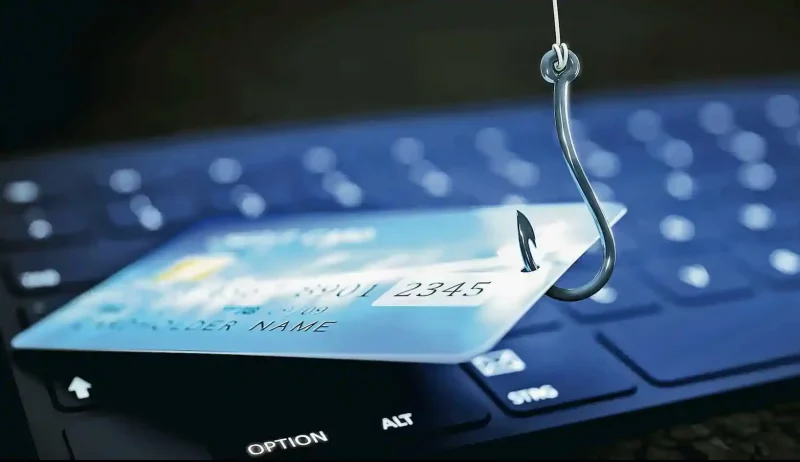How to Protect Yourself Online From Fraud. Social distancing and new guidelines for families to stay home mean more people are turning to the internet to stay connected. We tend to shop more online, utilize online conference tools like Zoom to stay connected, and, consequently, potentially making ourselves more vulnerable to online fraud. If you’re spending more time online lately, you may find yourself sharing vital information, like your credit card details, birthdate, location, or even your or bank account information.
Here’s everything you need to know about online fraud or scam, and how to protect yourself against it:
Post Outline
Common Types of Fraud
There are a series of ways fraudsters will try to scam you. Perhaps the most common type of fraud is referred to as phishing. This is when a criminal tries to lure you into providing your financial and personal information to deceitful websites, or other electronic communication.
Here are common types of phishing fraud or scams:
Identity Theft
Scammers try to steal personal information from individuals in order to assume their identity. This can lead to financial loss and legal trouble. They’ll use your personal information, like your social security number, address, credit card details, etc., to steal from you.
Credit Card Fraud
Online shoppers are always vulnerable to credit card scams, where buyers are tricked into submitting their card information to fraudulent websites, giving access to criminals who use the information to make purchases.
Auction Fraud
This is similar to shopping and paying for an item that you don’t receive or one that’s different from what was advertised.
Investment Fraud
Scammers pretend to be financial organizations and lure people into their fraudulent investment schemes. In reality, there’s no investment scheme, and the cybercriminal is just after your payment details.
Sweepstakes Scam
Scammers spammy emails to you saying a fee is needed to claim a lottery or sweepstakes, but the prize isn’t real.
Beware of COVID-19 Related Scams
It’s quite unfortunate that cybercriminals use times of uncertainty to set trick and steal data from people. The COVID-19 pandemic provides a few opportunities for these scammers to take advantage of uncertainty and fear.
Financial institutions and bodies recently released a warning to consumers about text messaging scams that demand bank account information in order to receive a stimulus check, for example. Consumers should also beware of any spammy emails with promises to protect you from COVID-19. There are reports of scammers sending malware through these emails.
The catch is that COVID-19 subject lines will entice people to open them in hopes of new information, but it’s just another attempt to steal your information.
How to Protect Yourself Online From Fraud
Being aware of possible online fraud is the first step. Always remember that times of vulnerability for the public are considered prime time for a scam by cybercriminals. To help protect yourself from the online scam, look out for the following key indicators:
Think Before You Click
Whether it’s an email, text message, or website, consider the source before clicking.
Ask yourself questions like
“Would my boss really send me this email?”; “Would my bank really ask for my social security number at this point?” or “Is this the bank mobile site I do login too? Does it look the same?”
Check The URL/link
If it begins with “HTTPS”, it means the site is secure and authentic, and your private data should be protected.
If you’re still not sure if the site is secure, check the WHOIS website to see who is responsible for a domain name or an IP address.
Review Contact Information
If you’re not sure whether the website you’re on or the email you’re reading is valid, check for the contact information including the phone number and address. Call the number and see who answers. If you think you’re calling your bank customer service, and it’s a busy tone instead, you may be dealing with a scammer.
Also, if an email was sent to you from someone or a company, check their email address. If it looks fishy or doesn’t match with previous emails you’ve received from them, leads are it’s a scam.
Search For Other Report Of Scam
If you type the company name and “scam” together with it into a search engine, you might find reports of other scam records. If you don’t see anything, it’s possible the scam is new, or that it’s not a scam at all.
Take Tour Time
Scammers will want you to rush. They’ll demand you wire money instantly, and they may even threaten you. Any renowned organization will not make these types of demands, so don’t initiate any transaction in a hurry. Take your time, research properly, and reach out to a family member and friends if you have questions.
What To Do If You feel You’ve Being Scammed Online
If you feel you’ve been scammed online, you should report the scam to your state financial crime agency. You may also consider notifying your bank, canceling your credit card, and taking other legal actions to stop any further financial damage.
Related posts:
- How To Use VPN To Hide Your Location
- Cybercrime: Definition, Types, And Categories
- Public Wifi – How To Use The Internet Safely While Traveling
